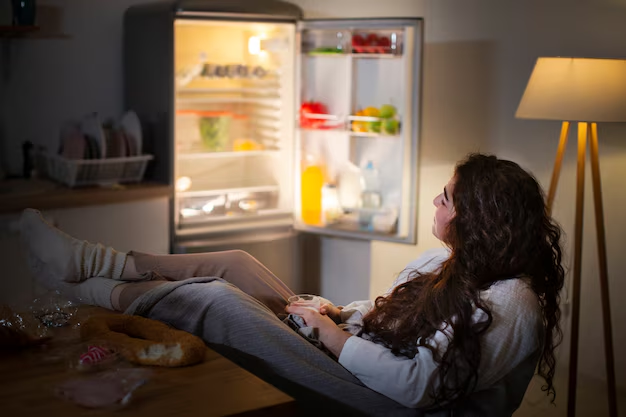Transform Your Fridge: Can It Operate Without a Water Line?
When it comes to kitchen appliances, refrigerators reign supreme. They're the crucial component ensuring our food stays fresh and beverages stay cool. But what happens when you bring home a fancy fridge with all sorts of features like built-in water dispensers and ice makers, and you realize you can't connect a water line? This article dives into the practicality and implications of using a refrigerator without a water line, offering insights and solutions for various scenarios.
Why Some Refrigerators Need a Water Line
Refrigerators with water dispensers and automatic ice makers typically require a water line. This line delivers a continuous supply of water directly to the fridge, allowing it to produce ice and provide filtered water with ease. However, not every household can accommodate these requirements due to plumbing limitations or personal preference.
Key Reasons for Water Line Connectivity
- Convenience: Enjoying chilled water on demand and having a steady supply of ice is undeniably convenient.
- Functionality: Certain features, particularly automatic ice makers, are designed to function optimally with a water line.
- Efficiency: Water lines eliminate the need to manually refill an ice mold or water reservoir.
Can You Use a Refrigerator Without a Water Line?
The short answer is yes, many refrigerators can operate without a water line, but with a caveat. The lack of water access means certain features will be unavailable or require manual intervention. Here's how you can navigate this setup:
Solutions for Using Fridges Sans Water Connection
Manual Fill Ice Makers: Select models offer manual fill ice makers, letting users pour water directly into the ice mold. These models are ideal for those without plumbing access nearby.
Portable Ice Makers: For those in need of flexible ice solutions, portable ice makers are an excellent external option. They can be plugged in elsewhere and provide a steady flow of ice.
Water Bottles and Containers: Keeping cold water in a jug or bottle can mimic the convenience of a dispenser. While it lacks the ease of a built-in system, it's a simple alternative.
📝 Quick Tips: Managing Without a Water Line
- ❄️ Manual Fill Ice Maker: Opt for this feature if you need ice but lack water line access.
- 🚰 Keep Water Bottles Handy: Store refillable water bottles in your fridge for easy access to chilled water.
- 🧊 Use Portable Ice Makers: Consider standalone ice makers for regular ice needs.
Additional Considerations
When deciding whether to skip the water line, consider the following:
Maintenance and Costs
Operating without a water line may reduce the complexity and cost of installations and maintenance. Without a water line, issues like leaks and water filter replacements become non-issues. However, this convenience may involve additional manual upkeep.
- Pros: Fewer plumbing costs, no need for water line maintenance, and potential energy savings.
- Cons: Possible inconveniences in refilling water and managing ice production manually.
Exploring Refrigerator Types
Choosing the right refrigerator involves understanding various types and assessing their water line reliance.
French Door and Side-by-Side Refrigerators
These types generally come equipped with dispensers and ice makers. While sleek and full of functionality, they often require water line access to operate all features fully.
Top Freezer Refrigerators
Top freezer models generally have fewer premium features, which can make them a water line-independent option. Many models offer manual ice trays, bypassing the need for direct water access.
Compact and Mini Fridges
Compact refrigerators are almost always water line-free. They come in handy for tight spaces and minimalistic setups, offering basic chilling functions without the bells and whistles of larger units.
Making an Informed Decision
Factors to Consider
- Space Availability: Smaller kitchens or unconventional layouts may limit your appliance options.
- Budget Constraints: Consider the financial implications of installing a water line versus purchasing portable add-ons.
- Lifestyle Needs: Evaluate how often you utilize water dispensers or ice features to determine necessity.
📊 Comparative Table: Refrigerators With vs. Without Water Lines
Here's a simple overview to help visualize the differences between refrigerators with and without water line connections.
| Feature | With Water Line | Without Water Line |
|---|---|---|
| Water Dispenser Availability | Yes | No |
| Ice Maker Functionality | Automatic | Manual/Portable |
| Installation Complexity | Higher | Lower |
| Maintenance | Requires more upkeep | Simplified |
| Cost of Installation | Varies, but can be high | Generally minimal |
| Utility Costs | Potentially higher | Basic refrigeration only |
Embracing the Water Line-Free Lifestyle
For those unable or unwilling to connect a water line to their refrigerator, adapting is a viable option as long as you're prepared for a few minor trade-offs. Prioritizing your needs and assessing your space, budget, and lifestyle can guide you toward a satisfying arrangement that doesn't compromise on freshness or convenience.
Final Insight: Tailoring Your Kitchen Experience
Using a refrigerator without a water line doesn't have to be a dealbreaker for comfort and efficiency. By understanding your appliance's capabilities and considering supporting gadgets and strategies, you can maintain a kitchen setup that aligns with your needs. Whether you're all about manual ice trays or portable ice makers, creative solutions ensure you won't miss out on any modern conveniences you desire.
By empowering yourself with options and knowledge, you'll be well-prepared to make the best choice for your kitchen—one that embraces the unique challenges and opportunities of a water line-free refrigerator.

